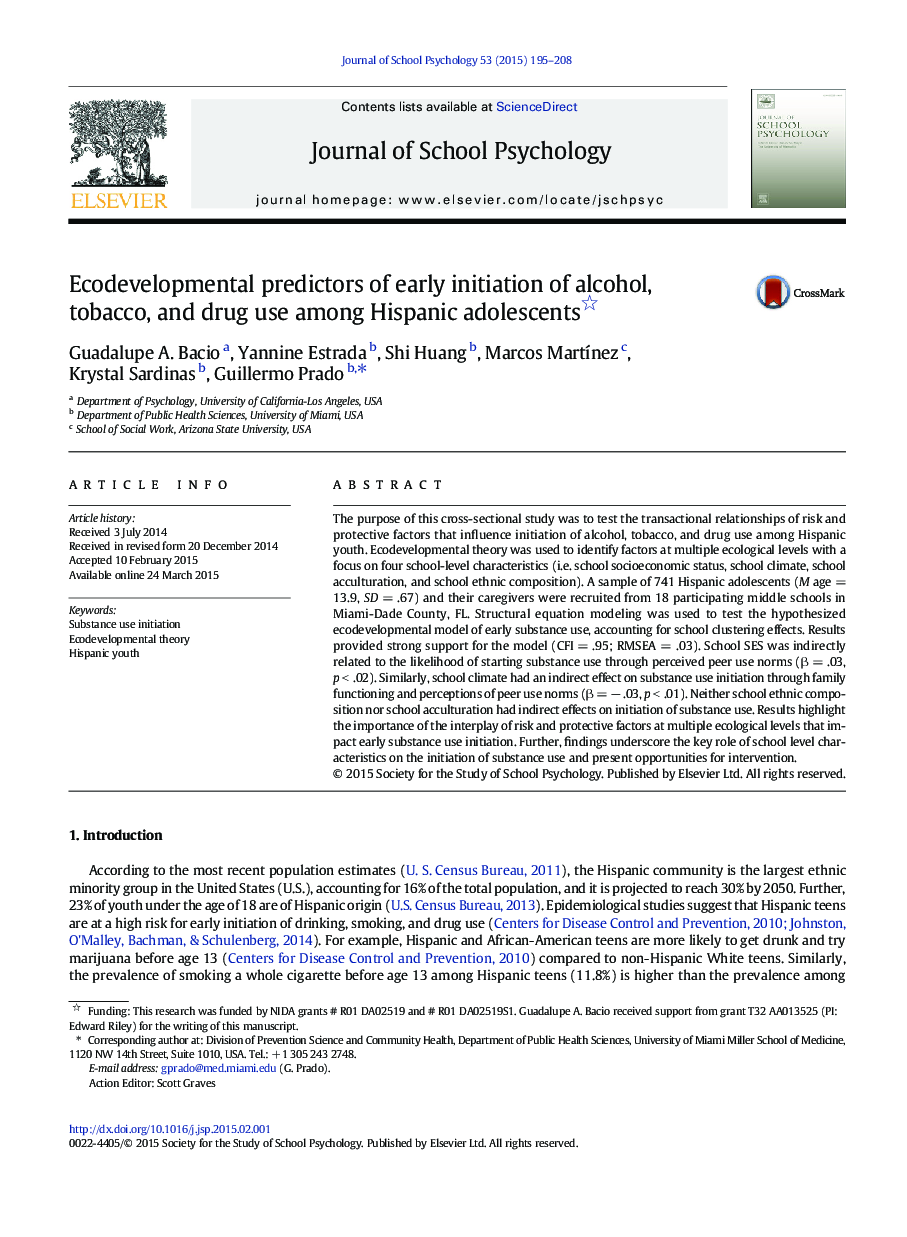| Article ID | Journal | Published Year | Pages | File Type |
|---|---|---|---|---|
| 363471 | Journal of School Psychology | 2015 | 14 Pages |
The purpose of this cross-sectional study was to test the transactional relationships of risk and protective factors that influence initiation of alcohol, tobacco, and drug use among Hispanic youth. Ecodevelopmental theory was used to identify factors at multiple ecological levels with a focus on four school-level characteristics (i.e. school socioeconomic status, school climate, school acculturation, and school ethnic composition). A sample of 741 Hispanic adolescents (M age = 13.9, SD = .67) and their caregivers were recruited from 18 participating middle schools in Miami-Dade County, FL. Structural equation modeling was used to test the hypothesized ecodevelopmental model of early substance use, accounting for school clustering effects. Results provided strong support for the model (CFI = .95; RMSEA = .03). School SES was indirectly related to the likelihood of starting substance use through perceived peer use norms (β = .03, p < .02). Similarly, school climate had an indirect effect on substance use initiation through family functioning and perceptions of peer use norms (β = − .03, p < .01). Neither school ethnic composition nor school acculturation had indirect effects on initiation of substance use. Results highlight the importance of the interplay of risk and protective factors at multiple ecological levels that impact early substance use initiation. Further, findings underscore the key role of school level characteristics on the initiation of substance use and present opportunities for intervention.
